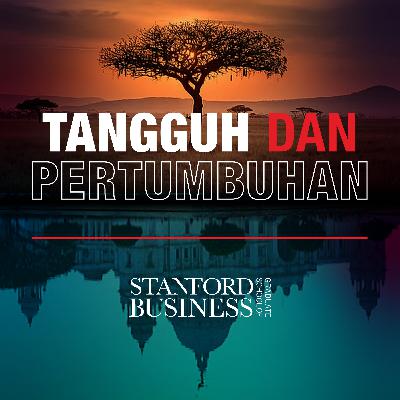Creating a Culture of Healthy Debate
Description
Does your company have a culture where people are truly free to speak their minds … without fear of retribution? At the start of the pandemic, Elikem Tamaklo, managing director for Nyaho Healthcare in Ghana, realized that the answer was no. Hear how he changed his company’s culture and his own behavior to lead his team through COVID-19 and beyond. Also, gain strategic insights from Sarah Soule, professor at Stanford Graduate School of Business, on the process and benefits of creating an environment of psychological safety in your organization.
Psychological safety wasn’t on Elikem Tamaklo’s mind when he joined his family’s private group medical practice. But in 2019 when the pandemic hit, uncertainty, fear, and challenging conversations were the norm. It didn’t take long to realize that if his team members weren’t willing to openly share what they were feeling and fearing, then decision-making would suffer.
Psychological safety, according to Sarah Soule, professor of organizational behavior, is a climate where people feel comfortable sharing their ideas and concerns and speaking up when needed. Most important, they must feel like they are not going to be judged or viewed negatively by the leaders when they do bring things up. Soule says the benefits to the organization are well-researched and impressive. “Morale is higher, burnout is lower, motivation is much, much higher. People are willing to participate in decision making and that leads to better decision-making. What we see is that team performance, creativity, and resilience increase, and we get higher levels of innovation,” Soule explains.
During COVID, everything was amplified, especially for those working in health care. The situation was made even worse when Tamaklo contracted the virus. He chose to publicize his diagnosis. “I said I would bear the risk personally. People acknowledged the bravery in sharing my COVID status and the narrative was more about people seeing that getting COVID is not your fault. So get tested,” he remembers. After much discussion, Nyaho became the first private organization to perform COVID testing.
Expressing vulnerability is one of the ways Soule says leaders can model the behavior they seek in others. She explains “The hardest thing that leaders have to do is to both model the kind of behavior that they want on the team and be sure when they invite the truth, it's authentic and people believe it.” Soule also advises leaders and their frontline managers to speak less and last, engage in active listening, and construct norms for how teams interact.
Listen to Tamaklo’s personal and company journey toward psychological safety and the challenges and benefits they’ve experienced. And get practical advice from Soule on how leaders and teams can create an open culture where productivity and innovation thrive.
See Privacy Policy at https://art19.com/privacy and California Privacy Notice at https://art19.com/privacy#do-not-sell-my-info.







